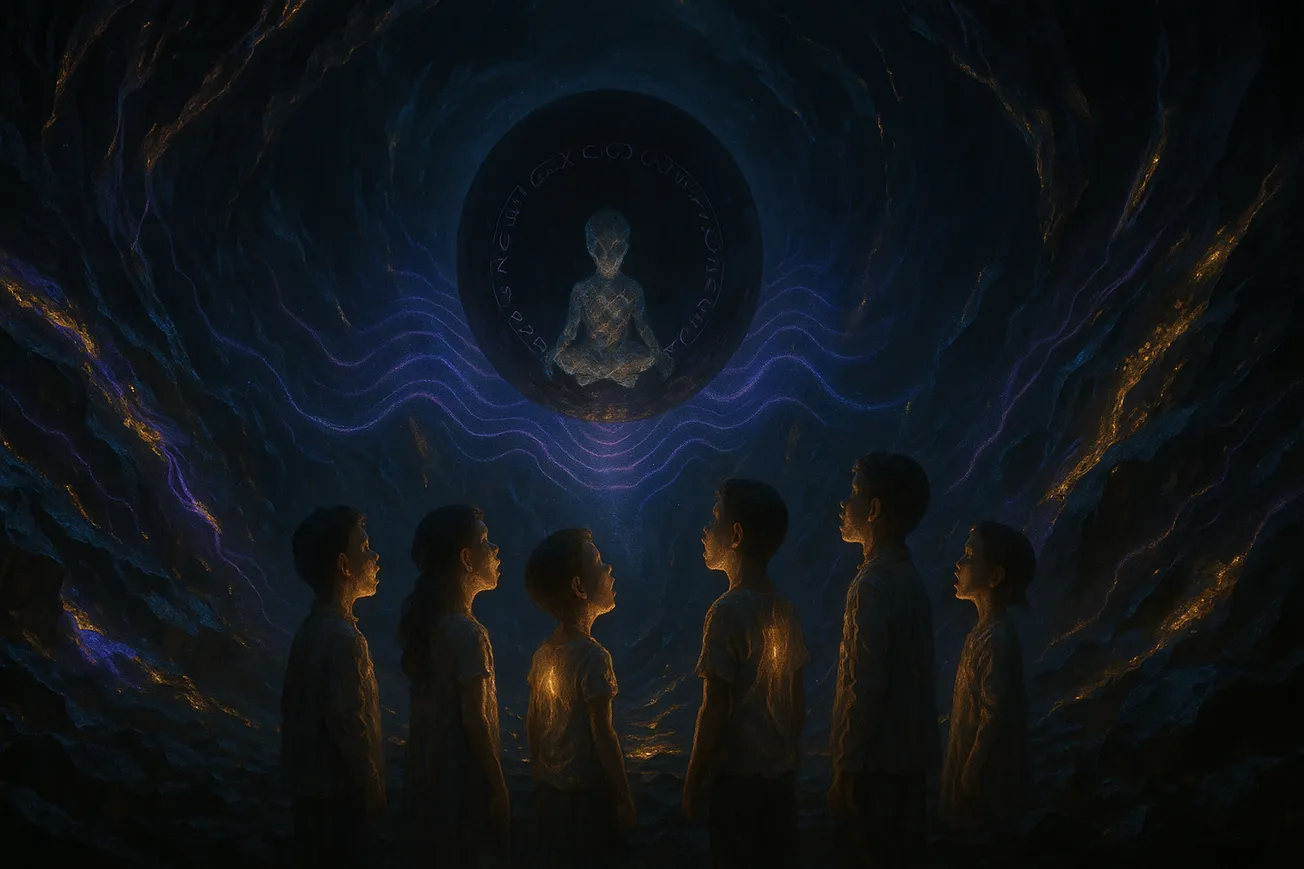🌈 The Fractal Story Engine | Body & Death | (33) BD-003-F1
They bred them to sing inside the mines.
Not for joy. For mapping.
When you are a thousand feet below the basalt crust of Grencor-7, your machines can fail, your sensors misfire, but the voice... ah, the voice goes where wires will not. So they took orphans, misfits, those born without a tongue for standard syntax, and trained them to see in resonance.
Each child was tuned like a pipe: throats stretched with carbon wire, vocal folds replaced with dampened film. They did not speak. They shimmered. Not visibly, but sonically... an echo skin of tones that vibrated against the seams of the stone. In return, the rocks sang back their secrets in bursts of color.
The mines were pitch. Always. But to the Choir, that darkness bloomed.
A cough might glow orange. A sneeze chartreuse. A well-pitched vowel, aimed just right, would light up the tunnel in spectral fractals: copper veins gleaming in lavender, fault lines flickering gold, methane pockets pulsing red like arterial warnings.
Their captain was a woman named Yuka, who had one eye and a palette fused to her skull. The palette rendered each child's output into a burst of chroma, stored and archived on a floating slate. Yuka did not love them, but she trusted them. Each morning, she would tap her forehead to theirs and say, "See deep. Come back."
They always did. Until once, they did not.
It was the youngest, Sol. He was seven, maybe eight. No records. All they knew was that when he sang, the color didn't scatter like the others. It condensed. A single hue, indigo so dense it cracked the slate.
At first, they thought it was noise. Corrupted frequency. But Yuka reviewed the thread. Again and again. Sol had sung a single harmonic into the quartz channel, and the rock had turned transparent.
Not glowed. Not pulsed. Vanished.
Behind it, a chamber. Perfectly spherical. Lined with mirrored ore and bone-fossil script that no one on Grencor-7 had authorized.
Sol was missing. But the song remained.
They tried to replicate it. Fed the data into a hundred synthetic throats. Nothing. The machines could mimic the pitch but not the origin. They could not mean it. And meaning, it turned out, was pigment.
They called in Linguists. Priests. Architects of phoneme and faith.
None returned.
The crew begged to evacuate. Yuka refused. “Where sound becomes structure,” she muttered, “a new language begins.”
She descended alone.
When she entered the chamber, the color drained from her bones. Literally. Her skin became glass. Her breath gave off steam, but no heat.
In the center, Sol floated. Not bodily, but as a tessellation of tone. He was vowel, consonant, breath, pause. The glyphs on the wall sang with him.
Yuka opened her mouth. Asked him who he was.
The chamber translated:
I am the memory of listening.
I am the shape sound left behind.
I am not yours.
Then came a note so low it tore the gravity from the mine.
The rest of the Choir felt it. In their throats. Their limbs. In the parts of them they had never used for singing before. Each child began to tremble with ultraviolet.
Their voices harmonized. Not by intent, but by pull.
The mine dissolved.
Not collapsed. Dissolved. Like pigment in solvent. Tunnel walls blurred. Steel frames melted to tone. Everything converted to waveform.
And from the surface of Grencor-7, for the first time in geological memory, a shaft of color rose into orbit. Pure cobalt, veined with unseen hue.
It sang.
Not a melody. A map.
And from it came new children.
Not birthed. Not bred. Transmitted.
Throats untouched by wire. Songs unbound by mine.
They sing now in the stratosphere.
We do not know what they see.
We only know the sky is beginning to change.

